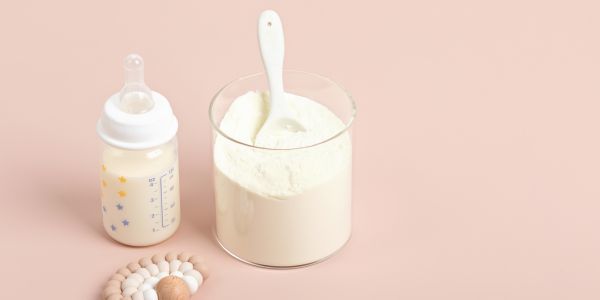

The 25th of November marked the beginning of 16 days of action against domestic violence.
As parents, this is definitely a topic that we should be speaking out about more. Sadly, there are mummies and daddies everywhere who are suffering in silence from domestic violence, who are either unable to recognise the reality of their situation or feeling unable to escape. It’s so, so important to address these situations, particularly if there are children in the household.
Here at Bump, Baby & You, we’re huge advocates for awareness raising & support, so we hope that highlighting this campaign helps anyone who reads this.
What is the ’16 Days of Action Against Domestic Violence’ campaign?
“16 Days of Action Against Domestic Violence is aimed at businesses to support them to take action against domestic abuse and violence. Employers have a legal obligation to assess dynamic risk and support the health and safety and wellness of their employees. Companies can do more to aid their employees who endure domestic violence, to train those who witness it, and to protect staff as a whole, with the goal of securing safety and mitigating financial loss. Spanning across 16 days from 25th November to 10th December, a theme will be identified each day to explore the various forms of domestic violence. In doing so, the workplace will be better equipped to acknowledge the signs that indicate it may be going on.” 16 Days of Action

What is Domestic Violence?
Domestic violence, also referred to as domestic abuse, encompasses all forms of of abuse between people in couple relationships or family relationships. It doesn’t always explicitly refer to physical violence; it also includes mental/emotional abuse and sexual abuse.
It can happen to anyone, and be perpetrated by anyone, regardless of gender.
Some statistics…
- 25% of women are affected by domestic violence during their adult lifetimes.
- 16% of men are affected by domestic violence during their adult lifetimes.
- 58% of abused women miss at least 3 days of work a month.
- 33% of all domestic violence murders happen on workplace grounds.
- 56% of abused women arrive late for work at least 5 times.
- 5% of men in England and Wales experienced domestic violence in the last year alone.
- 7% of women in England and Wales experienced domestic violence in the last year alone.
- Domestic violence annually costs UK businesses 2 BILLION pounds!
What are the signs of Domestic Violence/Abuse?
*Trigger warning for our readers who may be suffering with PTSD from previous experiences of Domestic Violence*
There are quite a few signs of being a victim of domestic violence, and if you are in this situation, you may not relate to all of these, but that doesn’t invalidate your situation. If you experience even one of the below within your relationship, it must be addressed urgently.
Sexual Abuse
- Being touched in a way you don’t want.
- Making unwanted sexual demands.
- Hurting you during sex.
- Pressuring you to not use contraception.
- Putting you under pressure to have sex.
Physical Abuse
- Being slapped, hit or punched.
- Being pushed or shoved.
- Being bitten.
- Being kicked.
- Being burned.
- Being choked.
- Being pinned down.
- Having things thrown at you.
Emotional Abuse
- Intimidating and threatening behaviour that scares you.
- Being threatened with physical harm or death.
- Being stood over menacingly in your personal space.
- Threatening to kill themselves or your children (often if you leave them).
- Reading your personal correspondence without your permission.
- Being harassed, followed or stalked.

How can I get involved in the campaign?
There are loads of ways that you can get involved in the 16 Days of Action Against Domestic Violence Campaign and make a difference in someone’s life.
If you’re an employer;
- Look into joining The Corporate Alliance. They’re a charity who work with employers by providing the tools to help employers to maximise the safety and well-being of their staff.
- Sign the pledge to improve public health in England – including improving services and support for domestic violence sufferers.
- Access the resource toolkit for companies on tackling domestic violence here.
If you’re a friend/relative;
- If you suspect domestic violence, don’t pressure them to leave as it may do more harm than good, but make it very clear that you are there for them if they need somewhere to stay or someone to talk to.
- If you strongly suspect there is a serious physical risk to anyone in their household, contact the police. Your friend or relative may not want you to do this, but if you have reason to believe their health or life is at imminent risk (especially if you’ve spotted injuries and particularly important if there are kids in the house), it is the right thing to do.
- Forward access to services to them; websites, helplines etc.
If you simply want to raise awareness;
- Sign the pledge to help improve public health services here!
- Use your social media regularly to share the pledge and share resources about domestic violence. If someone on your social media is suffering in silence, it may help.
- Reach out to sufferers by posting to let people know that your inbox is open for them in a time of need.
- Raise money for domestic violence charities where possible.

I think I’m a victim of Domestic Violence… What can I do?
It’s important, for the safety of yourself and your children, to remove yourself from the situation as soon as possible. This may feel like a completely impossible, daunting prospect, but you are not alone and there are services that are there to help you. You also don’t need to wait for an emergency situation to access this help.
- Talk to your GP, Health Visitor or Midwife.
- Women can call 0808 2000 247, the free 24-hour National Domestic Violence Helpline run in partnership between Women’s Aid and Refuge.
- Men can call the Men’s Advice Line free on 0808 801 0327 (Monday to Friday 9am to 5pm) or ManKind on 01823 334 244.
- In an emergency, call 999.
- Access The Survivors Handbook from Women’s Aid here.
- Men can email [email protected] for referral to local services.
- For forced marriage and “honour” crimes, contact Karma Nirvana (0800 5999 247) or The Forced Marriage Unit (020 7008 0151).
- For lesbian, gay, bisexual and transgender people experiencing domestic violence, contact Galop here.
- If you feel that you’re committing domestic abuse and need help to change, contact Respect on their free helpline on 0808 802 4040.
Read more on the NHS website here.
And most importantly, remember…
IT IS NOT YOUR FAULT.
No one ‘deserves’ this treatment.
No one ‘was asking for it’.
Nothing you said or did can justify being mentally, sexually or physically abused, and if your abuser tries this, it is known as ‘gaslighting’, a sign of a narcissist who will not truly recognise their behaviour or feel any sincere remorse.
You deserve better, and with access to the right support, you can live a much happier & safer life.
Sending all of our love to anyone struggling with domestic violence, or who has previously been a victim. You are not alone, we support you all the way.
Love from Katie & Team BBY. Xx


.png)







